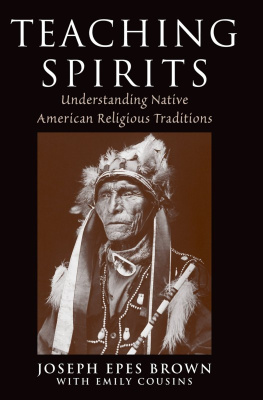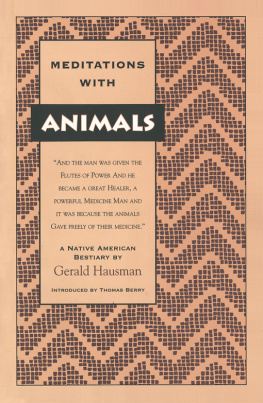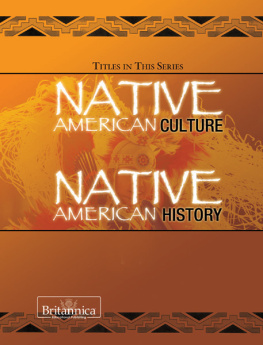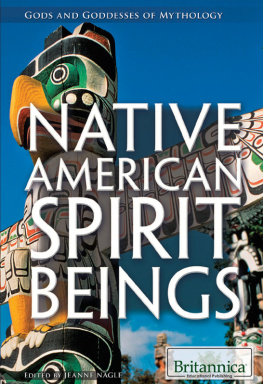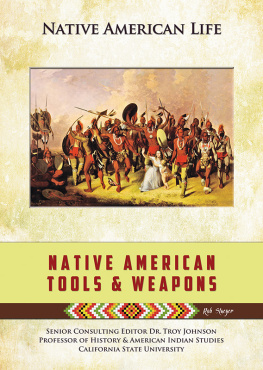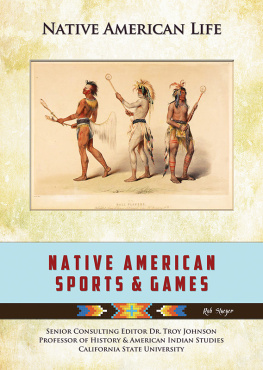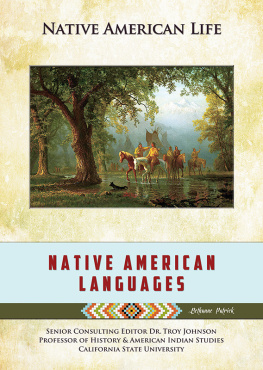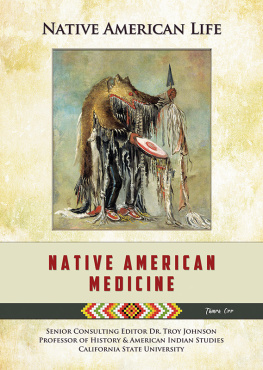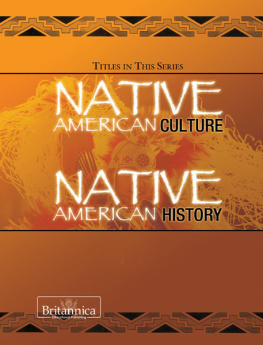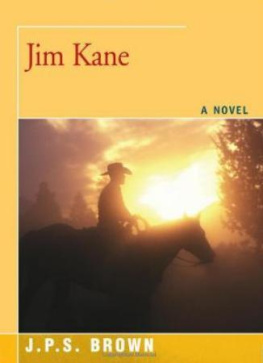Joseph Epes Brown - Teaching Spirits: Understanding Native American Religious Traditions
Here you can read online Joseph Epes Brown - Teaching Spirits: Understanding Native American Religious Traditions full text of the book (entire story) in english for free. Download pdf and epub, get meaning, cover and reviews about this ebook. year: 2001, publisher: Oxford University Press, genre: Religion. Description of the work, (preface) as well as reviews are available. Best literature library LitArk.com created for fans of good reading and offers a wide selection of genres:
Romance novel
Science fiction
Adventure
Detective
Science
History
Home and family
Prose
Art
Politics
Computer
Non-fiction
Religion
Business
Children
Humor
Choose a favorite category and find really read worthwhile books. Enjoy immersion in the world of imagination, feel the emotions of the characters or learn something new for yourself, make an fascinating discovery.
- Book:Teaching Spirits: Understanding Native American Religious Traditions
- Author:
- Publisher:Oxford University Press
- Genre:
- Year:2001
- Rating:3 / 5
- Favourites:Add to favourites
- Your mark:
- 60
- 1
- 2
- 3
- 4
- 5
Teaching Spirits: Understanding Native American Religious Traditions: summary, description and annotation
We offer to read an annotation, description, summary or preface (depends on what the author of the book "Teaching Spirits: Understanding Native American Religious Traditions" wrote himself). If you haven't found the necessary information about the book — write in the comments, we will try to find it.
Joseph Epes Brown: author's other books
Who wrote Teaching Spirits: Understanding Native American Religious Traditions? Find out the surname, the name of the author of the book and a list of all author's works by series.
Teaching Spirits: Understanding Native American Religious Traditions — read online for free the complete book (whole text) full work
Below is the text of the book, divided by pages. System saving the place of the last page read, allows you to conveniently read the book "Teaching Spirits: Understanding Native American Religious Traditions" online for free, without having to search again every time where you left off. Put a bookmark, and you can go to the page where you finished reading at any time.
Font size:
Interval:
Bookmark:
Teaching Spirits: Understanding Native American Religious Traditions
Joseph Epes Brown
Emily Cousins

Print publication date: 2001
Published to Oxford Scholarship Online: January 2009
DOI: 10.1093/acprof:oso/9780195138757.001.00012001

198 Madison Avenue, New York, New York 10016
Oxford University Press is a department of the University of Oxford It furthers the University's objective of excellence in research, scholarship, and education by publishing worldwide in
Oxford is a registered trade mark of Oxford University Press
in the UK and in certain other countries
Copyright 2001 by Joseph Epes Brown
All rights reserved.
Oxford University Press
Library of Congress CataloginginPublication Data
Brown, Joseph Epes.
Teaching spirits: Understanding Native American Religious Traditions /Joseph Epes Brown with Emily Cousins.
ISBN 0195138759
ISBN-13: 9780195138757
1. Indians of North AmericaReligion. 2. Indian mythologyNorth America. 3. Indians of North AmericaRites and ceremonies. I. Cousins, Emily. II. Title.
E98.R3B7532001299'.7dc2100044072
We would like to thank Celeste River and Philip Jones, two of Joseph Brown's graduate students and friends, for their valuable contributions, suggestions, and class notes. Rodney Frey, a former student and colleague, also shared his memories. Donald Good Voice generously included his reflections on studying with Joseph.
Literary agent Susan Bergholz contributed sound advice, Professor Ewert Cousins gave endless encouragement, and Daniel Scott offered support and inspiration. Friend and colleague Peter Nabokov provided essential suggestions and insights.
We also thank the many students who sent class notes, recollections, art work, and contributions, including Rucina Ballinger, Julia Becker, Joe Campbell, Sherry Dingman, Richard Feldman, Woody Kipp, Richard Manning, Susie Lindbergh Miller, Malcolm O'Leary, Nancy Rey, and Charles Stephens.
How You Speak Could Change the World
I am a ChippewaCree from the Rocky Boy Reservation. I am fortytwo years old. My dad, John Gilbert Meyers, was born in 1932 and pretty much was raised traditional. He raised us eleven kids with the old traditional style of living, of showing respect, of not being too boastful, of taking things real slow, and of respecting the things that we don't understand.
Meeting Joe was a really good experience for me. It was during the seventies when Indian people, especially my generation, were going through what you would call an identity crisis. Many of us were pushed off the reservations to seek better education and higher learning, but there was a sacrifice we had to make for this. The sacrifice, which I made partially to be in a place of higher learning, was to put aside our traditional upbringing and our traditional beliefs. We had to become aggressive and boisterous, become like the nonIndian who runs the system. We had been led to believe ever since kindergarten that the old ways were done for, that they had no meaning, no monetary or economic value. All the way up until graduation from high school, we were told that the traditional way wasn't of any consequence and that we were something that had to be turned around and remade. That had a tremendous effect on our selfesteem; that's where our identity crisis began.
When I first met Joe, I felt like I was going down a wrong road. I was kind of like a fake, a carbon copy. I guess I was shooting for that ultimate goal of being a WASP. That was unrealistic, but that was what my dad and other people wanted for us. They didn't really want us to be WASPs, but they wanted a better life for their children. My mother, my dad, their relatives, they grew up in an age of terrible poverty when the Depression was going full blast. Their grandparents were alive at a time when the U.S. government outlawed their religion and their language. They grew up in an era when it was frightening to be Indian, to be traditional. It was a matter of life and death for them.
But Joe made me and my generation realize that there was something valuable in our old traditions. We thought our traditional religion was something to be ashamed of, something we had to do on the sly. Joe made it okay; he made it seem like it was our basic human right. I guess Joe was a catalyst for us. We were jumping from one world to another world, but there was no bridge. So Joe became the bridge that made the connection. Suddenly we were whole again. It was good.
I was trying to figure out these two worlds when I met Joe. I had to choose what classes to take, and, as I was looking through the University of Montana catalogue, I saw that there was a Native American religion course being offered by this Joseph Epes Brown. I asked around about him, and people said they really enjoyed his classes and got a lot out of them. At first some of the Native American students were offended that here was this white man talking about Indian religion. They wondered what he knew about Indians, but, once they took the class and participated in his classroom, their attitudes changed dramatically. They realized that his approach was different, the way he handled students was different; it was more humane. He made us feel like we were the teachers and that he was there to learn from us.
So I made a point to go visit him in his office. The reception I got was overwhelming to me, because he treated me so well, so warmly. I was never treated like that by other instructors. They didn't treat me like a human being; they treated me like a number. But Joe told me to sit down, and he brought me a cup of tea. When he got me all comfortable and situated, then he asked, What tribe are you? What's your name? It was so unusual, because I was used to a type of structured interview. He wanted to forget that for a while and get to know each other on a human basis; then we could do the required thing at the end. He showed me his office, showed me his buffalo skull and paintings by his student, Arthur Amiotte. He showed me everything, and it made me feel like a special person. I thought, This man radiates kindness. So, right then and there I decided I would take his class.
When I went to his first class, I was surprised that there were more nonIndians than there were Indians. Some of the nonIndians were antagonistic and close-minded. Some of them were trying to make him stumble over his knowledge of Native Americans and his experiences with Black Elk. They were after the power situation. They wanted to know if Joe had any of the spiritual power that Black Elk had, which is so superficial. That's not why Joe was with Black Elk. He was there for the knowledge that could be shared with the coming generations, but they didn't see it that way; they saw it in terms of what was in it for them. Joe never got offended, though. He would give a straight answer, an answer from the heart, and it satisfied them because they wouldn't ask the same question again. He always made them feel that it was okay to have such questions.
His classes guided some of the Indian people in the gray area who chose to be in the plastic world. He guided them back and made them realize, Hey, there's beauty in your way. There's beauty in your traditions; there's beauty in your culture. Don't throw it away. I remember him saying in class, You have a beautiful way about you, you have a beautiful background behind you. People in your tribe years ago, they had a social structure that was so humane, so democratic, so pure that it couldn't be improved upon, because it gave everybody equal right, equal opportunities for women, for children, for old people. It was so great, he said. Hang on to that. That's going to be more valuable to you than these books, than money, than credit cards. And it's so true. He gave us so much value, so much to look forward to. He gave us hope.
Next pageFont size:
Interval:
Bookmark:
Similar books «Teaching Spirits: Understanding Native American Religious Traditions»
Look at similar books to Teaching Spirits: Understanding Native American Religious Traditions. We have selected literature similar in name and meaning in the hope of providing readers with more options to find new, interesting, not yet read works.
Discussion, reviews of the book Teaching Spirits: Understanding Native American Religious Traditions and just readers' own opinions. Leave your comments, write what you think about the work, its meaning or the main characters. Specify what exactly you liked and what you didn't like, and why you think so.

